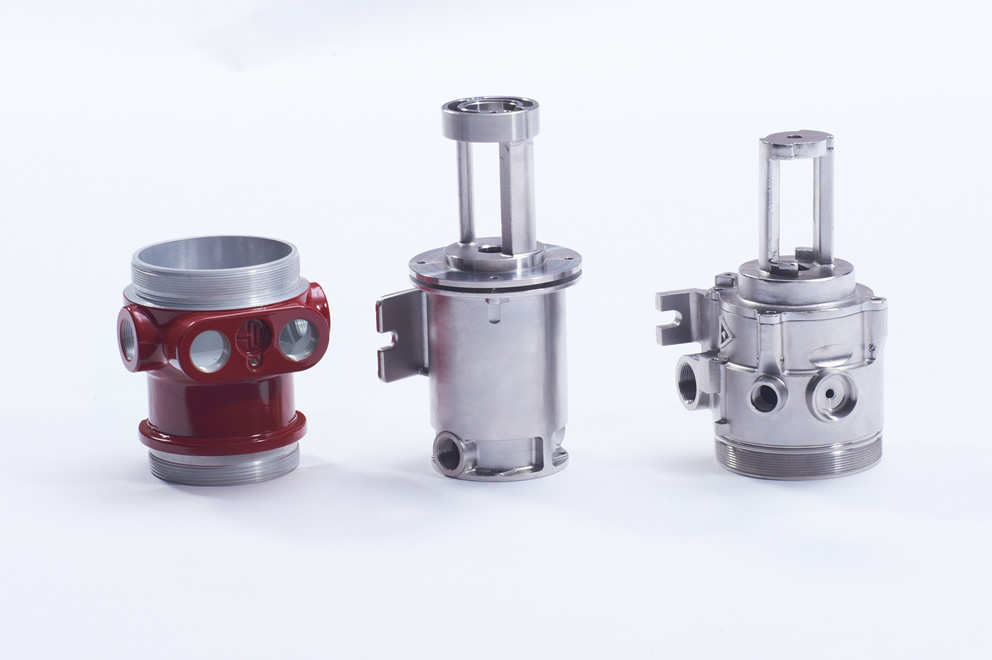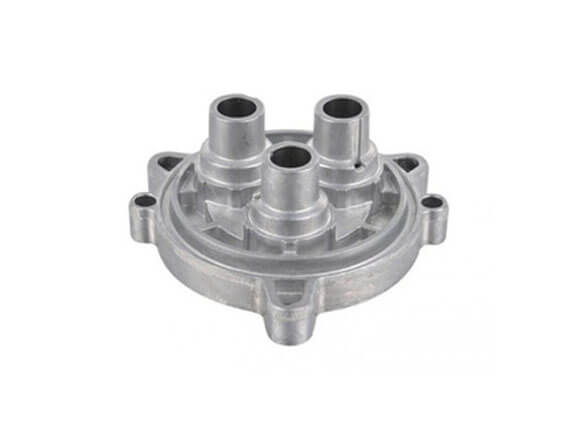Aluminum casting techniques that deliver lightweight components
Wiki Article
How Light Weight Aluminum Foundries Contribute to Numerous Industries: An Extensive Introduction
Light weight aluminum shops serve as essential distributors across numerous industries, consisting of automobile, aerospace, construction, and electronics. They generate parts that are not just lightweight yet additionally long lasting, improving the efficiency of numerous products. With sophisticated spreading methods and a commitment to sustainability, these foundries are adjusting to meet advancing market demands. As they innovate, the effect of aluminum castings on different applications increases crucial concerns about the future of production. What lies ahead for this important sector?The Duty of Light Weight Aluminum Foundries in the Automotive Industry
As the automobile sector progressively welcomes lightweight products to enhance fuel efficiency and efficiency, light weight aluminum shops play an important function in this development. These facilities concentrate on the production of light weight aluminum castings, which are vital components in modern cars. By offering high-strength, lightweight components, light weight aluminum foundries make it possible for suppliers to minimize the general weight of vehicles, eventually leading to improved gas economy and minimized exhausts.Light weight aluminum's resistance to corrosion even more enhances lorry longevity, making it an attractive option for automakers. Shops use sophisticated techniques such as die casting and sand spreading to produce specific and detailed components, guaranteeing that they satisfy rigid sector criteria. Additionally, the ability to reuse light weight aluminum efficiently adds to a much more sustainable production process. As the automotive industry continues to innovate, light weight aluminum shops will certainly remain critical in delivering the materials necessary for the next generation of cars, supporting both efficiency and environmental goals.

Aerospace Applications of Aluminum Castings
Aluminum castings are indispensable to the aerospace market, supplying a combination of lightweight stamina and resilience that is critical for airplane efficiency. These spreadings are utilized in numerous parts, such as engine components, structural frames, and landing gear, where weight decrease is critical for gas efficiency and general security. The convenience of light weight aluminum permits for complex geometries that enhance wind resistant performance while maintaining structural stability.Furthermore, developments in casting modern technologies have improved the accuracy and surface area finish of aluminum components, lowering the requirement for extensive post-processing. This performance not just speeds up production timelines however also decreases prices, making light weight aluminum an appealing selection for makers. The rust resistance of aluminum guarantees long life and reliability in extreme operating atmospheres, even more developing its role in aerospace applications. As the sector evolves, aluminum spreadings remain to be a necessary material, driving innovation and sustaining the advancement of next-generation aircraft.
Building And Construction Market Developments With Light Weight Aluminum
The building and construction market has actually significantly taken on light weight aluminum because of its light-weight homes and flexibility, paralleling its effective applications in aerospace. Developments in light weight aluminum style have led to more powerful, much more reliable structures, making it possible for contractors and architects to check out new possibilities. The material's resistance to deterioration and low maintenance needs make it specifically appealing for both industrial and household projects.Light weight aluminum's flexibility promotes the development of intricate styles, permitting visual enhancements that were formerly difficult with conventional materials. Prefabrication methods have actually additionally evolved, using aluminum to lower building and construction time and prices substantially. Furthermore, the power performance of aluminum systems-- such as window frames and roofing-- adds to lasting building techniques, lining up with contemporary ecological requirements. As the building and construction industry continues to accept these developments, light weight aluminum's function is expected to increase, driving additional development and adding to the advancement of resistant facilities.
Electronic devices and the Need for Lightweight Aluminum Parts
With the rapid development of modern technology, the demand for light-weight light weight aluminum components in the electronics sector has actually surged. As tools come to be much more portable and portable, suppliers look for products that use both durability and weight reduction. Light weight aluminum, with its exceptional strength-to-weight proportion, has actually arised as a preferred option for parts such as coverings, heat sinks, and structural assistances.Using aluminum not only boosts product efficiency yet likewise contributes to power efficiency, as lighter gadgets call for less power during operation. Furthermore, light weight aluminum's superb conductivity makes it suitable for digital applications, making sure reliable heat dissipation and reducing the danger of overheating.
As consumer choices shift in the direction of smooth find more and light-weight gadgets, light weight aluminum foundries play an essential function in meeting the developing needs of the electronics go to this site sector (Precision aluminum casting). Their capability to produce high-grade and specific light weight aluminum components supports development, making it possible for producers to press the boundaries of style and functionality
Sustainable Practices in Light Weight Aluminum Foundries
As the electronics sector increasingly focuses on sustainability, light weight aluminum foundries are adapting their methods to line up with these ecological goals. Numerous foundries are executing reusing programs that recover light weight aluminum scrap, significantly lowering the need for raw materials and minimizing waste. By using energy-efficient modern technologies, these facilities are reducing their carbon footprint; for circumstances, employing electric heaters instead of standard gas-fired ones can cause significant power financial savings.Furthermore, aluminum foundries are purchasing water preservation steps, such as closed-loop systems that reuse water utilized in cooling down processes. These methods not just reduced water usage yet also reduce the environmental effect related to wastewater discharge. In addition, many foundries are discovering eco-friendly power resources, such as solar and wind power, to satisfy their energy requires sustainably. Via these campaigns, light weight aluminum factories exhibit a dedication to ecological stewardship while proceeding to satisfy the demands of the electronics market.
Future Fads in Aluminum Factory Technologies
Arising innovations are poised to transform light weight aluminum factories, improving efficiency and product high quality while progressing sustainability efforts. Technologies such as artificial knowledge and artificial intelligence are anticipated to maximize manufacturing processes by predicting devices failures and boosting resource allowance. The integration of sophisticated robotics will certainly simplify procedures, reducing labor prices and decreasing human error.Additive manufacturing, or 3D printing, is additionally gaining grip, allowing the production of complex geometries that were formerly unattainable with typical methods. This change could cause significant material savings and minimized waste. In addition, wise shops utilizing IoT (Web of Things) modern technologies will allow real-time tracking and data analysis, promoting proactive decision-making.
The fostering of cleaner melting technologies and reusing strategies will certainly better decrease the environmental footprint of light weight aluminum shops, making them extra sustainable. Collectively, these patterns signify a future where aluminum foundries can operate with greater effectiveness and obligation.
Often Asked Inquiries
get redirected hereWhat Are the Ecological Effects of Aluminum Foundries?

Exactly How Do Foundries Make Sure Top Quality Control in Aluminum Casting?
Foundries guarantee top quality control in light weight aluminum spreading by implementing strenuous inspection processes, making use of innovative innovation, performing routine material screening, and sticking to industry requirements, therefore keeping consistency and reliability in their ended up products. Aluminum Casting Company.What Is the Average Life Expectancy of Aluminum Cast Components?
The average life-span of aluminum actors components commonly ranges from 10 to 50 years, relying on elements such as ecological conditions, usage, and upkeep. Correct treatment can significantly boost their sturdiness and efficiency in time.Exactly How Are Aluminum Alloys Selected for Particular Applications?
Aluminum alloys are chosen based upon factors such as stamina, deterioration resistance, weight, and thermal conductivity. Designers review the particular demands of applications to figure out one of the most ideal alloy for best performance and longevity.What Are the Safety Regulations for Light Weight Aluminum Foundry Workers?
Security guidelines for light weight aluminum foundry workers consist of personal protective devices requireds, air flow demands, exposure limits to harmful materials, and protocols for handling liquified metal. Conformity assurances worker safety and decreases health and wellness threats connected with shop operations.As the auto sector increasingly embraces light-weight products to boost fuel efficiency and efficiency, light weight aluminum shops play a crucial role in this evolution. As customer choices change towards lightweight and streamlined gizmos, light weight aluminum foundries play an important role in fulfilling the progressing needs of the electronics industry. As the electronic devices sector progressively focuses on sustainability, light weight aluminum factories are adapting their practices to straighten with these environmental objectives. Many factories are carrying out recycling programs that recover light weight aluminum scrap, substantially minimizing the need for raw products and lessening waste. Security regulations for light weight aluminum factory workers consist of personal protective devices mandates, ventilation requirements, exposure restrictions to harmful materials, and methods for taking care of molten metal.
Report this wiki page